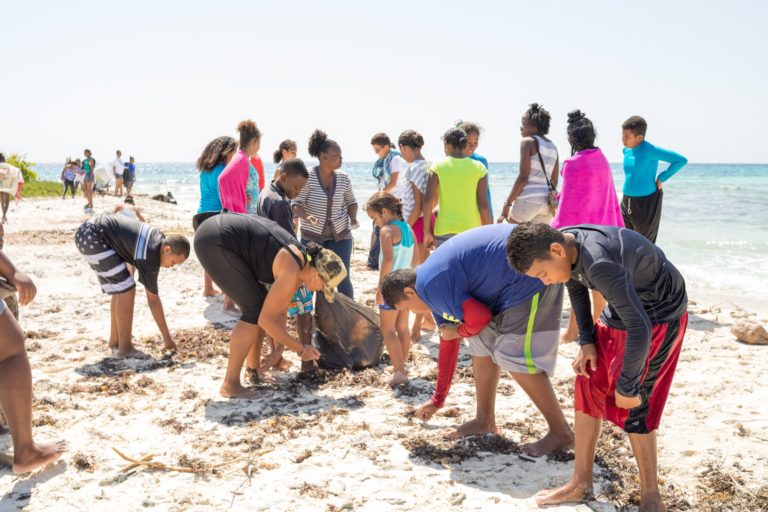
By Arreini Palacio Morgan, Placencia Lagoon Waterkeeper
Two hundred million plastic bags are imported annually by a country the size of New Hampshire, with a population of approximately 400,000 people. That is around 500 plastic bags per person — it’s UNBELIZEABLE!
When they’re not piling up in landfills, plastic bags and expanded polystyrene foam (commonly known as Styrofoam) are blocking drains, littering streets and highways, and contaminating the sea where fish, birds, and other marine animals consume them.
Although plastic bags are widely used and considered to be a strong, cheap, and easy way of carrying items, the impacts of single-use plastic bags are undeniable. They form a large part of the growing pollution in Belize.
Decomposition takes between 20 to 1,000 years for plastic bags that are used by the average person for only a few minutes. In Belize, these bags are not recycled but last for decades in the disposal landfill. According to the Belize Solid Waste Management Authority, the nation produces more than 3,000 tons of waste per month, which is made up of 19 percent plastic and Styrofoam.
Contaminated waters from this garbage affect the barrier reef causing irreparable damage to the fragile marine ecosystem. With the second largest barrier reef in the world, Belize has been striving to do its part to reduce marine pollution and protect the natural environment that is the foundation of its vibrant tourism industry.
March 2018 marked a change for the country. A task force of representatives from key government ministries announced that Belize will phase out single-use plastic items, such as plastic bags and utensils, and Styrofoam by April 22, 2019.
For the Belizean conservation community, this is a long overdue landmark move as Belize is now seen as doing its part to reduce pollution and protect the resources that our tourism and fishing industries depend on.
For those that frequently use single-use plastics, have no fear—there are biodegradable alternatives already on the Belizean market. You can purchase shopping bags, clamshells, coffee cups, and plates that are manufactured from plant-based materials. Reusable straws made from bamboo stalks are available at wholesale and retail stores in southern Belize. And beautifully designed reusable cloth or canvas shopping bags can be purchased from conservation organizations—often the proceeds go back to outreach work.
In southern Belize, the health of the marine environment is directly tied to the economic success of the communities buffering the Placencia Lagoon. The annual clean-up cost of marine pollution is considerable and borne by volunteers, government agencies, and non-governmental organizations. Placencia Lagoon Waterkeeper has embarked on an outreach campaign to local fishers and tour guides on the new legislation and methods to prepare for the eventual phase-out. In the past three months, more than 300 community members have attended a series of our presentations.
The phasing out of single-use plastic is applauded by and compliments the conservation work of Placencia Lagoon Waterkeeper!